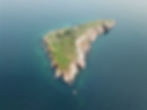
At the point we have reached in our approximately 300,000-year relationship with the Earth, humans have regrettably become the dominant force shaping the planet. We now face a growing list of problems driven by our unfair practices and detachment from nature, especially our dependence on fossil fuels and overconsumption, as well as air and water pollution, soil degradation, and more: climate change, loss of biodiversity, ocean acidification, increase in drought and hunger.
Support the efforts of Marine Life Conservation Society to create “nature based solutions, together with nature" and help us make a difference.
Make a Difference




GHOST NET HUNTERS
The silent hunters in our seas are responsible for the death and harm of millions of animals each year.
Read more


.png)
Tavşan (Rabbit) Island Protected Area
Following years of observations and research carried out by our Society since 2015, and with the consultation of leading scientists in the field, we submitted a joint application with all relevant NGOs and volunteers to ensure the sustainability of future marine life. As a result of this effort, Tavşan (Rabbit/Neandros) Island has been officially designated a protected area under Presidential Decree No. 3817.

Coral Guardians
We are aware of the role coral reefs play in global climate balance.
That's why we created the Coral Guardians project, Turkey's first and only coral transplantation initiative.
Read more

Make a Difference
Nature does not restrict development, but forms its foundation.
At the point we have reached in our approximately 300,000-year relationship with the Earth, humans have regrettably become the dominant force shaping the planet. We now face a growing list of problems driven by our unfair practices and detachment from nature, especially our dependence on fossil fuels and overconsumption, as well as air and water pollution, soil degradation, and more: climate change, loss of biodiversity, ocean acidification, increase in drought and hunger.
Support the efforts of Marine Life Conservation Society to create “nature based solutions, together with nature" and help us make a difference.
Make a Difference
Nature does not restrict our development; it forms its foundation.
At the point we have reached in our approximately 300,000-year relationship with the Earth, humans have regrettably become the dominant force shaping the planet. We now face a growing list of problems driven by our unfair practices and detachment from nature, especially our dependence on fossil fuels and overconsumption, as well as air and water pollution, soil degradation, and more: climate change, loss of biodiversity, ocean acidification, increase in drought and hunger.
Support the efforts of Marine Life Conservation Society to create “nature based solutions, together with nature" and help us make a difference.



Biodiversity Monitoring
The Marmara Sea holds significant importance globally and locally due to its rich species diversity, both on a worldwide scale and within our country.
The Sea of Marmara, with its highly productive currents and Mediterranean environment, is nutritionally rich.
For this reason, to use it as scientific data and to protect the species in this region, we launched our "Species Observers" project on the biodiversity of the Princes' Islands in November 2020.


.jpeg)
.png)

In the Sea of Marmara, fishing nets that have been deliberately or accidentally abandoned by fishermen over the years continue to trap marine life passively, causing harm to millions of creatures every year. We are working to remove these silent hunters from our seas and striving to ensure they are properly repurposed.

Coral Guardians
We are aware of the role that coral reefs play in global climate balance.
That's why we established the Coral Guardians project, Turkey's first and only coral transplantation initiative.
.png)
Following years of observations and research carried out by our Society since 2015, and with the consultation of leading scientists in the field, we submitted a joint application with all relevant NGOs and volunteers to ensure the sustainability of future marine life. As a result of this effort, Tavşan (Rabbit/Neandros) Island has been officially designated a protected area under Presidential Decree No. 3817.
.png)

In the Sea of Marmara, fishing nets that have been deliberately or accidentally abandoned by fishermen over the years continue to trap marine life passively, causing harm to millions of creatures every year. We are working to remove these silent hunters from our seas and striving to ensure they are properly repurposed.

Coral Guardians
We are aware of the role that coral reefs play in global climate balance.
That's why we established the Coral Guardians project, Turkey's first and only coral transplantation initiative.
4o mini
Bilimsel Çalışmalar
< BackIKSV Tuzlu Su Bienali
Deniz Yaşamını Koruma Derneği’nin deniz dibinden topladığı atıklarla üretilen heykel, video ve enstalasyon gibi sanatsal üretimlerimizi sizinle paylaşabilmek adına “Marmara’dan Akdeniz’e Sürdürülebilirlik Serüveni” projemizin bir parçası olan HİPOKSİ isimli sergimizi 11.112022- 25.11.2022 tarihleri arasında İzmir Çatı Sanat Alanı'nda ziyaret edebilirsiniz.
WWF-Türkiye (Doğal Hayatı Koruma Vakfı) ve İstanbul Üniversitesi ile birlikte hazırladığımız “Hayalet Balıkçılık” raporuyla deniz plastik çöpünün en ölümcül haline dikkat çekiyoruz.





_JPG.jpg)
.jpg)
_JPG.jpg)